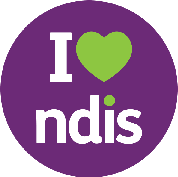Understanding the different NDIS support coordination levels is essential for making the most of your plan. Whether you’re a participant or a family member supporting a loved one, knowing which level of coordination is right for your needs can make all the difference.
The NDIS provides three levels of support coordination: Level 1 (Support Connection), Level 2 (Coordination of Supports), and Level 3 (Specialist Support Coordination). Choosing the right level is crucial: it ensures you get enough help (so supports aren’t missed) without paying for extra services you don’t need.
Below, we explain each level in detail and give tips on how to pick the best one for your situation. For families and carers, understanding these NDIS support coordination levels means you can better advocate for the right help for your loved one.
What is NDIS Support Coordination?
Support coordination is a capacity-building support under the NDIS. In plain terms, a support coordinator helps you make the most of your NDIS plan. They will help you understand what’s funded in your plan, connect you with appropriate NDIS providers, as well as community and government services, and build your confidence and skills to manage supports.
In practice, this means a coordinator can guide you through NDIS plan implementation by coordinating therapies, assistive equipment, and other NDIS support services with the aim of helping you achieve your goals.
According to the NDIS, there are three levels of support coordination that can be funded in your plan:
- Level 1: Support Connection
- Level 2: Coordination of Supports
- Level 3: Specialist Support Coordination
Understanding these levels helps ensure you can pick the support that matches your needs.
Level 1 – Support Connection
What it is
Level 1 – also called Support Connection – is the entry level of support coordination. It’s aimed at participants who need help at the start of their plan but do not require ongoing, intensive coordination.
A Level 1 coordinator helps you understand your plan and find and connect with supports. For example, they will explain how your plan’s funding works and introduce you to NDIS providers, community groups, or mainstream services relevant to your goals.
Who it’s for
This level is suitable if you mainly need initial guidance. For instance, if you or your family are familiar with navigating services but just need some direction or referrals, Level 1 can help you get started. It is ideal when you have only a few supports to manage and you feel comfortable taking more control once you know where to look.
Benefits and limitations
Key features include:
- Plan navigation: Understanding how to use your NDIS plan and budget effectively
- Connecting to services: Linking you with local NDIS providers, community programs, and mainstream services
- Building independence: Coaching you to manage your supports, build confidence, and use informal/community supports
Limitations:
- No crisis planning or complex case management
- Not suitable for participants with multiple, intensive or high-risk needs
Level 2 – Coordination of Supports
What it is
Level 2 – Coordination of Supports – involves more in-depth coordination. A Level 2 coordinator actively designs and arranges a mix of supports so you can meet your goals.
According to the NDIS, this includes: “Putting in place a mix of supports to increase a participant’s capacity to maintain relationships, manage tasks, live more independently and be included in their community.”
Who it’s for
This level is for participants with moderate complexity. If you have several supports funded (e.g. a therapy service, supported employment, and daily living assistance) and need help juggling appointments and communication between providers, Level 2 will help.
It also suits participants wanting to build long-term independence and those who benefit from ongoing support without needing high-risk case management.
What it includes
- Creating and reviewing support strategies
- Monitoring service delivery and reporting
- Supporting you to exercise choice and control
- Basic crisis resolution and troubleshooting
Real-World Example
A young adult with an intellectual disability who receives support from a speech therapist, a support worker, and an employment provider may need help making sure all services are working together. A Level 2 coordinator helps schedule, communicate with providers, and track whether goals are being met.
Limitations
- Does not handle severe risk or multi-agency coordination
- It may not be sufficient if your situation involves complex mental health, justice involvement, or multiple urgent needs
Level 3 – Specialist Support Coordination
What it is
Level 3 – Specialist Support Coordination – is the highest level and is intended for people with very complex needs or high-risk situations.
The NDIS defines this as suitable for “participants whose situations are more complex and who need specialist support.”
Who it’s for
This is for participants with:
- Complex support environments
- Interactions with multiple systems (e.g., justice, housing, health)
- Significant psychosocial disability or mental health needs
- Behavioural issues requiring risk planning
What it includes
- Crisis intervention and risk management
- Coordination across multiple agencies or systems
- Developing specialised service plans to overcome barriers
- Intensive support to resolve immediate and ongoing risks
Key responsibilities
- Ensure all services are working cohesively
- Advocate on behalf of the participant with external stakeholders
- Help participants transition through major life events (e.g., from prison or hospital)
Benefits
- Expert handling of complex, high-risk support plans
- Helps stabilise life situations so other goals can be achieved
- Ensures continuity and consistency of support
If you or your loved one faces complex barriers, NDIS support coordination at Level 3 may be essential for success.
How to Know What Level You Need
Choosing the right support coordination level depends on:
1. Complexity of Needs
- Low: Only need help connecting to services? Level 1.
- Moderate: Need regular help managing multiple supports? Level 2.
- High: Have complex risks, agency involvement, or unstable supports? Level 3.
2. Confidence in Self-Managing
- Comfortable handling day-to-day support after initial help? Level 1.
- Need active support with scheduling and service delivery? Level 2.
- Need a team to stabilise your environment? Level 3.
3. Risk and Crisis Factors
- Level 1: No risk factors
- Level 2: Occasional help with resolving issues
- Level 3: Regular crises or urgent interventions needed
It’s essential to discuss your needs with your NDIS planner. They will help ensure the level funded in your plan aligns with your goals and complexity.
How Centre of Hope Can Help
At Centre of Hope, we support participants at all levels of NDIS support coordination. Whether you’re new to the NDIS or navigating complex systems, we provide personalised support that aligns with your goals.
- Explore our services
- Learn more about support coordination
- Book an appointment with a coordinator
- Submit a referral for tailored support
FAQs
What’s the difference between Level 2 and Level 3 NDIS support coordination?
Level 2 includes support with managing and reviewing services and occasional crisis resolution. Level 3 includes high-risk planning, managing multiple agencies, and creating specialised support plans.
Can I change my support coordination level?
Yes. You can request a different level during your plan review if your needs change. However, if your plan specifies a level, you must use that level until your next review.
How do I know if I need specialist support coordination?
If you face complex barriers such as homelessness risk, mental health recovery, or involvement with justice/hospitals, Level 3 may be necessary. Speak with your planner or support provider.
Can I have multiple levels of support coordination?
Yes, some participants may receive both Level 2 and Level 3 funding in their plan for different goals or time periods.
Is support coordination available to everyone?
Not always. It must be considered “reasonable and necessary”. Your planner will help determine eligibility.








